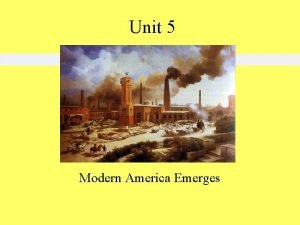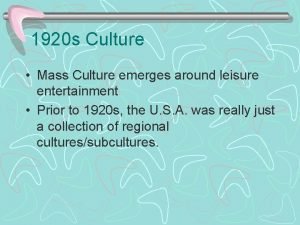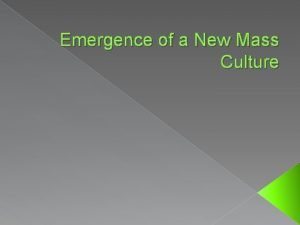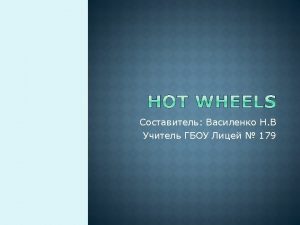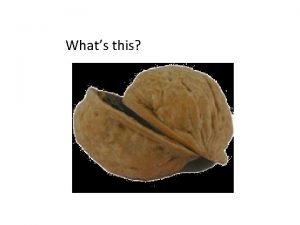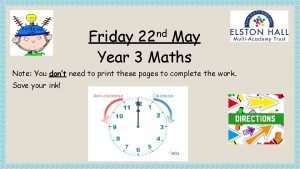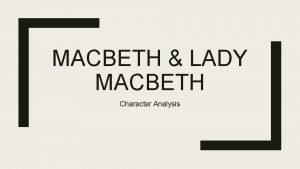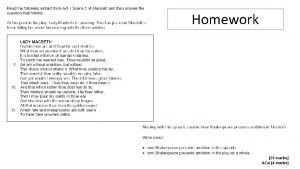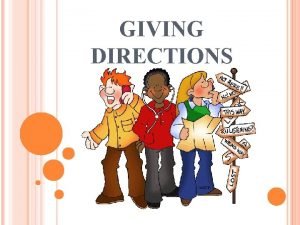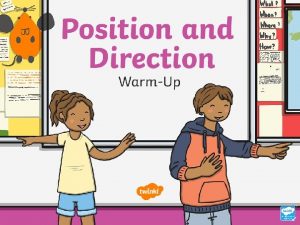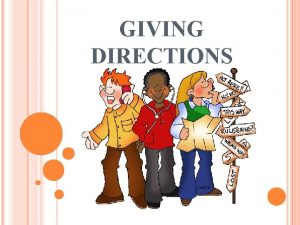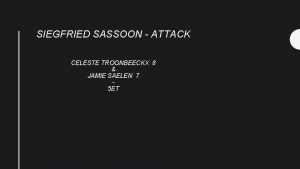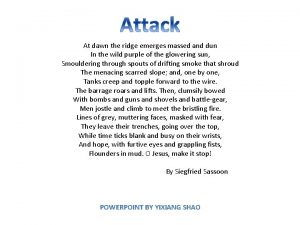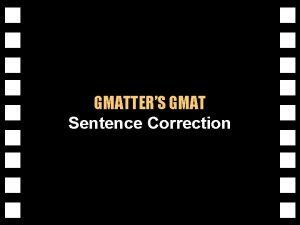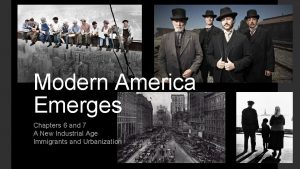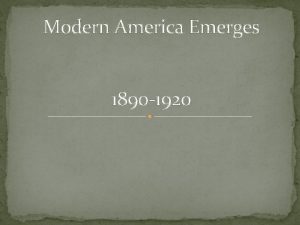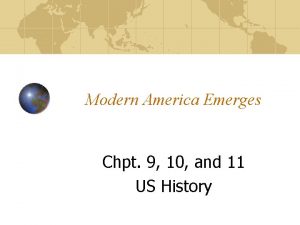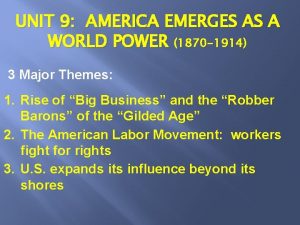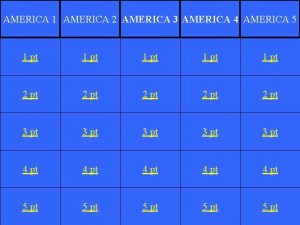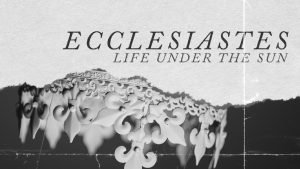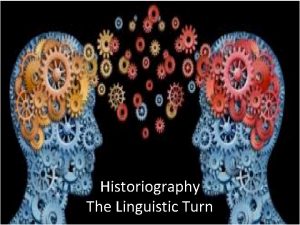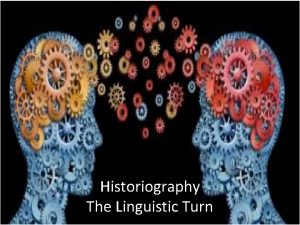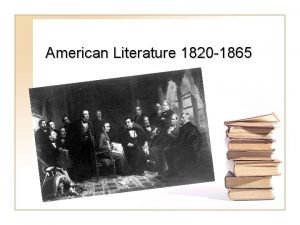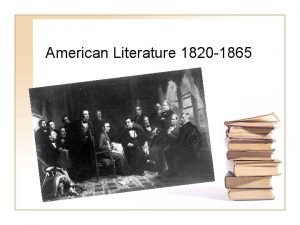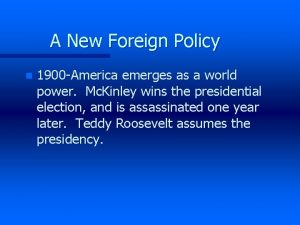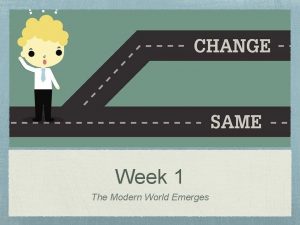Modern America Emerges Unit 7 At the turn
















- Slides: 16

Modern America Emerges Unit 7

At the turn of the century there were a lot of people that wanted to make things better in America n These people were part of an idea called progressivism (They wanted people to have better opportunities and fix injustices) n You’ve heard of these movements before – suffrage, civil rights, temperance, prison reform, education movements…. .

At this time the president was… n n Theodore Roosevelt (Teddy Roosevelt) He became president when William Mc. Kinley (was assassinated after just 6 months in office. He was our youngest president ever (Kennedy was youngest ever “elected”).

Roosevelt n n Saw government as an “umpire” that made sure everyone got a “square deal” – workers, consumers, and big business. Passed the Sherman Anti-Trust Act (Which did a lot of things to get rid of things that “just weren’t right. )” Broke up the railroads, oil companies, tobacco companies – whose power and wealth was in the hands of just a few All together dealt with 44 corporations while president.

Another business that needed regulating was the meat packing industry n n n Upton Sinclair wrote a book called: The Jungle about the meat packing industry in Chicago. He described horrible things – unsanitary and unsafe conditions for workers, even dead rats mixed into the sausage. Roosevelt passed the: Meat Inspection Act Pure Food and Drug Act to make food and medicines safe (like the FDA today)

The Chicago Stockyards (closed in 1971)

n n n Source: "The Jungle" by Upton Sinclair, 1906 There were cattle which had been fed on "whiskey malt" the refuse of the breweries and they had become what the men called "steerly" which means covered with boils. It was a nasty job killing these, for when you plunged your knife into them they would burst and splash foul smelling stuff into your face; and when a man’s sleeves were smeared with blood, and his hands steeped in it, how was he ever to wipe his face, or to clear his eyes so that he could see? It was stuff such as this that made the "embalmed beef" that had killed several times as many United States soldiers as the bullets of the Spaniards; only the army beef, besides, was not fresh canned, it was old stuff that had been lying for years in the cellars. These rats were nuisances, and the packers would put poison bread out for them; they would die, and then rats, bread, and meat would go into the hoppers together. This is no fairy story and no joke; the meat would be shoveled into carts, and the man who did the shoveling would not trouble to lift out a rat even when he saw onethere were things that went into the sausage in comparison in which a poison rat was a tidbit.

Roosevelt also loved the outdoors n n He loved to hunt, fish, ride horses, and just be an active energetic outdoorsman. Roosevelt preserved more than 200 million acres of national parks. When they wouldn’t let him have any more national parks he came up with the idea of national “monuments. ” John Muir was an important man in telling/showing everyone what these parks were like.

John Muir was a Scottish-born American naturalist, author, and early advocate of preservation of wilderness in the United States The world, we are told, was made especially for man - a presumption not supported by all the facts. A numerous class of men are painfully astonished whenever they find anything, living or dead, in all God’s universe, which they cannot eat or render in some way what they call useful to themselves. They have precise dogmatic insight into the intentions of the Creator, and it is hardly possible to be guilty of irreverence in speaking of their God any more than of heathen idols. He is regarded as a civilized, law-abiding gentlemen in favor either of a republican form of government or of a limited monarchy; believes in the literature and language of England; is a warm supporter of the English constitution and Sunday schools and missionary societies; and is as purely a manufactured article as any puppet at a half- penny theater. (“Man’s Place in the Universe”)

n National Park System from Infoplease. com

This was also a time in U. S. History when some new Amendments were added to the Constitution: n n 16 th Amendment: Congress created an income tax: you pay a percentage of what who earn at work – or from investments. Some other taxes: Property taxes: on property you own – pays for schools, libraries, fire departments, etc… Sales Taxes: On the price of products people buy. Estate Taxes: on the value of property of a person who has died.

The 18 th Amendment: Prohibition n Illegal to make. Sell, or transport alcohol

Women n n All the new inventions changed their lives at home (running water / electricity). Families were becoming smaller. Some women started getting jobs (factories, offices, stores, telephone operators, clerks, typists). Some women got college degrees. But women were expected to quit if they got married.

And we’ve read about Jane Adams and Hull House in Chicago n n n Many other women did the same kinds of things. Helped new immigrants. Helped the unemployed find jobs. Set up youth clubs, kindergartens, nurseries. Pressured politicians for help.

And… finally… the 19 th Amendment Susan B. Anthony Elizabeth Cady Stanton Carrie Chapman Catt Women won the right to vote (suffrage)

 Modern america emerges
Modern america emerges Modern mass culture emerges leisure
Modern mass culture emerges leisure Modern mass culture emerges leisure
Modern mass culture emerges leisure You can't turn right here you turn left
You can't turn right here you turn left Hellhound macbeth
Hellhound macbeth Answer. go straight turn left turn right
Answer. go straight turn left turn right Turn the arrow 1/4 turn clockwise
Turn the arrow 1/4 turn clockwise Who says o valiant cousin worthy gentleman
Who says o valiant cousin worthy gentleman Macbeth seeing banquo's ghost quote
Macbeth seeing banquo's ghost quote Turn left turn right go straight on
Turn left turn right go straight on Themes about guilt
Themes about guilt A tomato flames
A tomato flames Put your right hand in
Put your right hand in Go straight ahead and turn left
Go straight ahead and turn left At dawn the ridge emerges massed and dun
At dawn the ridge emerges massed and dun At dawn the ridge emerges massed and dun
At dawn the ridge emerges massed and dun Some bat caves like honeybee hives
Some bat caves like honeybee hives
